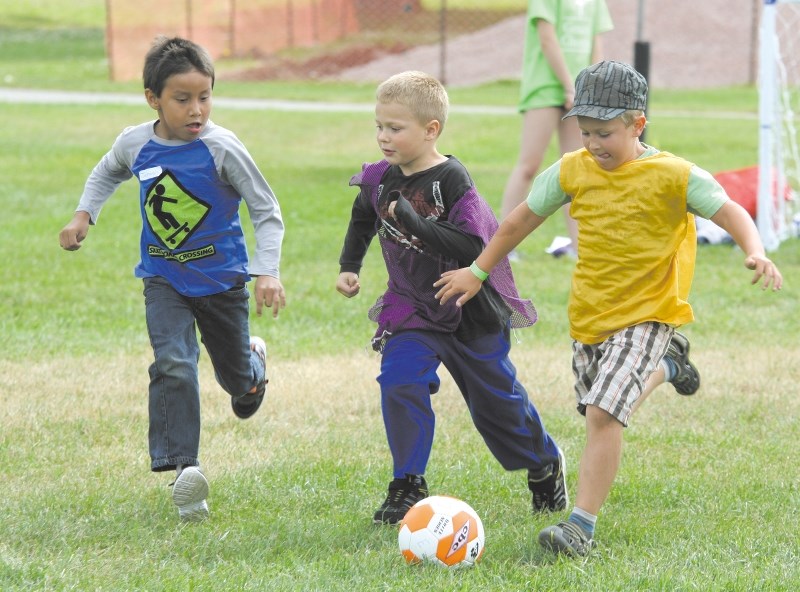When the final school bell rings in June and classroom doors swing shut for the summer, a familiar question echoes through households across the country: what now? For many parents, summer break marks the beginning of a juggling act—one that balances work, fun, structure, and spontaneity, all while trying to keep kids busy, safe, and maybe even entertained.
For some families, the solution is a tightly coordinated calendar packed with camps, swimming lessons, day trips and educational outings. Others embrace a more flexible approach, relying on a blend of planning, improvisation, and community support. Regardless of the method, the goal remains the same: to make it through those long summer weeks without losing momentum, or sanity.
“I joke that summer break is a full-time job for me, not just the kids,” said Ana Morales, a mother of two from St. Albert. “My daughter is in soccer one week, and camp the next. We have calendars taped to the fridge to help keep track of everything.” Morales, like many working parents, spends her summer orchestrating the family schedule, knowing that downtime can quickly turn into restlessness without some structure.
Summer camps remain a popular go-to, offering everything from robotics and coding to rock climbing and outdoor survival skills. These specialty programs not only give kids a chance to explore new interests but often provide parents with a few precious hours of childcare. However, camps can be costly, and not every family has the budget or the flexibility to enrol their children in back-to-back sessions. That’s where community can make a world of difference.
“I rely on other parents in the neighbourhood,” said James Walker, a father of three. “We rotate playdates, take turns hosting backyard movie nights, and plan small day trips to nearby parks or splash parks. It becomes a shared effort, and honestly, it brings us closer as neighbours.” Informal networks like these have become essential for many families, helping to fill in the gaps when formal programming falls short.
Libraries and local recreation centres also play a crucial role during the summer months, stepping up with free or low-cost programs that aim to keep young minds engaged. Weekly storytimes, craft afternoons, and city-wide reading challenges offer some much-needed structure, and often, a break for parents. For working families especially, these programs can be a lifeline.
Still, summer isn’t just about filling every moment. For some, it’s also a time to slow down, to reconnect with their children, and to savour the simple pleasures of unstructured time. “We try to leave one or two weeks open but still keep busy,” said Morgan Thomas, a mother of one. “My son loves going out to little events around the city and we like to stay active, but it can get expensive, so sometimes we keep things on the down low like mornings at the park, picnics, or a camping trip.”
Of course, not every moment of summer break is peaceful. The long stretch of unscheduled time can also bring fatigue, frustration, and plenty of meltdowns—both from kids and parents. Juggling work obligations with childcare can feel overwhelming, and the constant question of “What are we doing today?” can wear thin fast. Screen-time limits stretch and patience runs short.
Yet even with the chaos and the messiness, many parents say there’s something undeniably magical about spending the summer with their kids. It’s a fleeting season, both literally and emotionally. In the end, summer isn’t just about keeping kids occupied. It’s about making memories in the in-between moments, the ones that stick long after the school bells ring again.




